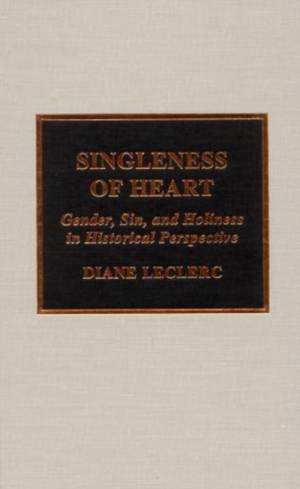
- Afhalen na 1 uur in een winkel met voorraad
- Gratis thuislevering in België vanaf € 30
- Ruim aanbod met 7 miljoen producten
- Afhalen na 1 uur in een winkel met voorraad
- Gratis thuislevering in België vanaf € 30
- Ruim aanbod met 7 miljoen producten
Zoeken
€ 110,45
+ 220 punten
Omschrijving
This book, in light of recent feminist theology on the doctrine of sin, attempts to provide historical support for such feminist considerations. It examines fourth-century church fathers, John Wesley, and Phoebe Palmer as places where an alternative of traditional definitional definition, pride, can be found. Diane Leclerc devotes this study to an important twofold question: "What is the most adequate Christian diagnosis of our fundamental human problem?" and the corollary, " How should we understand the wholeness/holiness that Christianity seeks to promote?". While this interrelated topic is challenging in its own right, she has also chosen to approach it by bringing into dialogue some diverse conversation partners. What makes Leclerc's study so instructive is that no partner in this conversation emerges without some challenge for revision, or without some affirmation of their central concerns.
Specificaties
Betrokkenen
- Auteur(s):
- Uitgeverij:
Inhoud
- Aantal bladzijden:
- 208
- Taal:
- Engels
- Reeks:
- Reeksnummer:
- nr. 13
Eigenschappen
- Productcode (EAN):
- 9780810841505
- Verschijningsdatum:
- 23/10/2001
- Uitvoering:
- Hardcover
- Formaat:
- Genaaid
- Afmetingen:
- 139 mm x 223 mm
- Gewicht:
- 353 g

Alleen bij Standaard Boekhandel
+ 220 punten op je klantenkaart van Standaard Boekhandel
Beoordelingen
We publiceren alleen reviews die voldoen aan de voorwaarden voor reviews. Bekijk onze voorwaarden voor reviews.











